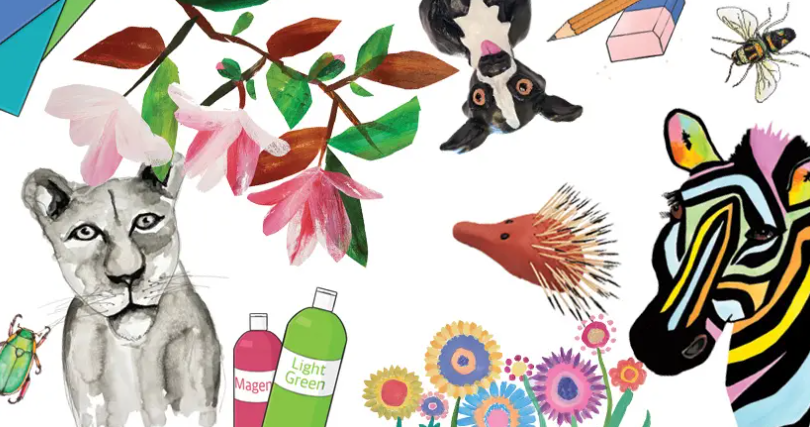Embarking on an artistic journey is a thrilling adventure for children, igniting their imagination and unleashing their creativity. At our studio, we believe in the transformative power of art lessons for kids, where every stroke of the brush and dab of color opens up a world of possibilities. In this comprehensive guide, we explore the magic of art education for young minds, offering insights, techniques, and inspiration to nurture a lifelong love for the arts.
The Magic of Art Education
Stimulating Imagination and Self-Expression
Art lessons provide children with a blank canvas to express themselves freely and explore their innermost thoughts and feelings. From painting vibrant landscapes to sculpting whimsical creatures, art lessons for kids encourage them to unleash their creativity and let their imagination run wild. Through artistic expression, children learn to communicate visually, developing a unique voice that speaks volumes without uttering a word.
Cultivating Problem-Solving Skills
Engaging in artistic activities challenges children to think critically and problem-solve creatively. Whether they’re brainstorming ideas for a new project or troubleshooting technical issues, art lessons for kids foster resilience and perseverance in the face of challenges. As they experiment with different mediums and techniques, children learn to adapt, innovate, and overcome obstacles with confidence and grace.
Fostering a Growth Mindset
Art education instills a growth mindset in children, emphasizing the value of effort, persistence, and continuous learning. Art lessons for kids celebrate the process of creation rather than the final product, encouraging children to embrace mistakes as opportunities for growth and improvement. By cultivating a positive attitude towards challenges and setbacks, art empowers children to approach life with curiosity, resilience, and a thirst for knowledge.
The Benefits of Art Lessons for Kids
Enhances Fine Motor Skills
Engaging in artistic activities promotes the development of fine motor skills and hand-eye coordination in children. Whether they’re wielding a paintbrush, shaping clay, or cutting paper, art lessons for kids offer valuable opportunities for tactile exploration and skill refinement. These foundational skills not only support artistic endeavors but also enhance performance in academic subjects such as writing, typing, and handwriting.
Encourages Emotional Expression
Art serves as a powerful outlet for children to express their emotions, thoughts, and experiences in a safe and non-judgmental environment. Whether they’re creating a self-portrait or illustrating a cherished memory, art lessons for kids provide a therapeutic space for emotional exploration and self-reflection. Through artistic expression, children learn to identify and process complex feelings, building resilience and emotional intelligence along the way.
Promotes Cultural Awareness
Art lessons offer children the opportunity to explore diverse cultures, traditions, and perspectives through visual expression. By studying art from different time periods and regions, art lessons for kids gain a deeper understanding of the world around them and develop empathy for others. From ancient cave paintings to contemporary street art, art education fosters appreciation for cultural diversity and promotes cross-cultural dialogue and understanding.
Tips for Engaging Art Lessons
Foster a Supportive Environment
Create a nurturing and inclusive atmosphere where children feel encouraged to take creative risks and express themselves authentically. Art lessons for kids should be a judgment-free zone where mistakes are celebrated as opportunities for learning and growth. Encourage children to support and inspire one another, building a sense of community and camaraderie in the studio.
Encourage Experimentation and Exploration
Provide a variety of art materials and tools to inspire children to experiment with different mediums and techniques. Whether it’s painting with watercolors, sculpting with clay, or printmaking with found objects, art lessons for kids should be a playground of possibilities. Encourage children to follow their curiosity, take risks, and push the boundaries of their creativity with each new project.
Celebrate Individuality and Diversity
Encourage children to embrace their unique perspectives, experiences, and artistic styles. Art lessons for kids should celebrate diversity and inclusion, fostering a sense of belonging and acceptance among all participants. Encourage children to draw inspiration from their own lives, cultures, and backgrounds, celebrating the rich tapestry of human experience through art.
In conclusion, art lesson for kids are more than just a creative pastime; they’re a transformative journey of self-discovery, expression, and growth. By stimulating imagination, cultivating problem-solving skills, and promoting cultural awareness, art education empowers children to thrive in an ever-changing world. Join us on this artistic adventure and watch your child’s creativity soar to new heights.
